Abstract
The purpose of this study was to clarify the effect of differing nutritional states on various components of the immune system, especially on the interplay of the complement system and cell-mediated immunity. Malnutrition was induced in Sprague—Dawley rats by feeding them diets containing 5% protein or 0.5% protein as compared with 18% protein in the diet of the controls. Nutritional rehabilitation was achieved in some experimental groups by transferring those fed 0.5% protein diet to the 18% protein diet. Malnutrition was confirmed by weight changes, biochemical findings in the sera, haematological observations and histological observation of the liver, and rehabilitation was confirmed by body weight increase and changes in other measurements. In rats suffering malnutrition, the tuberculin skin reactivity was suppressed. After feeding the 0.5% protein diet for 8 weeks, all the rats showed negative tuberculin skin reactions. In the malnourished rats, including those fed with 0.5% protein, the serum complement level decreased but did not show any significant differences as compared with the well nourished control group. After 1 week of nutritional rehabilitation, the tuberculin reactivity of six out of ten rats remained negative and after 2 weeks, all rats showed positive tuberculin reactions. After 1 week of nutritional rehabilitation, all the rats showed a normal or higher serum complement level. At this stage, two of the tuberculin-negative rats showed significantly higher titre of serum complement than even the controls.
Full text
PDF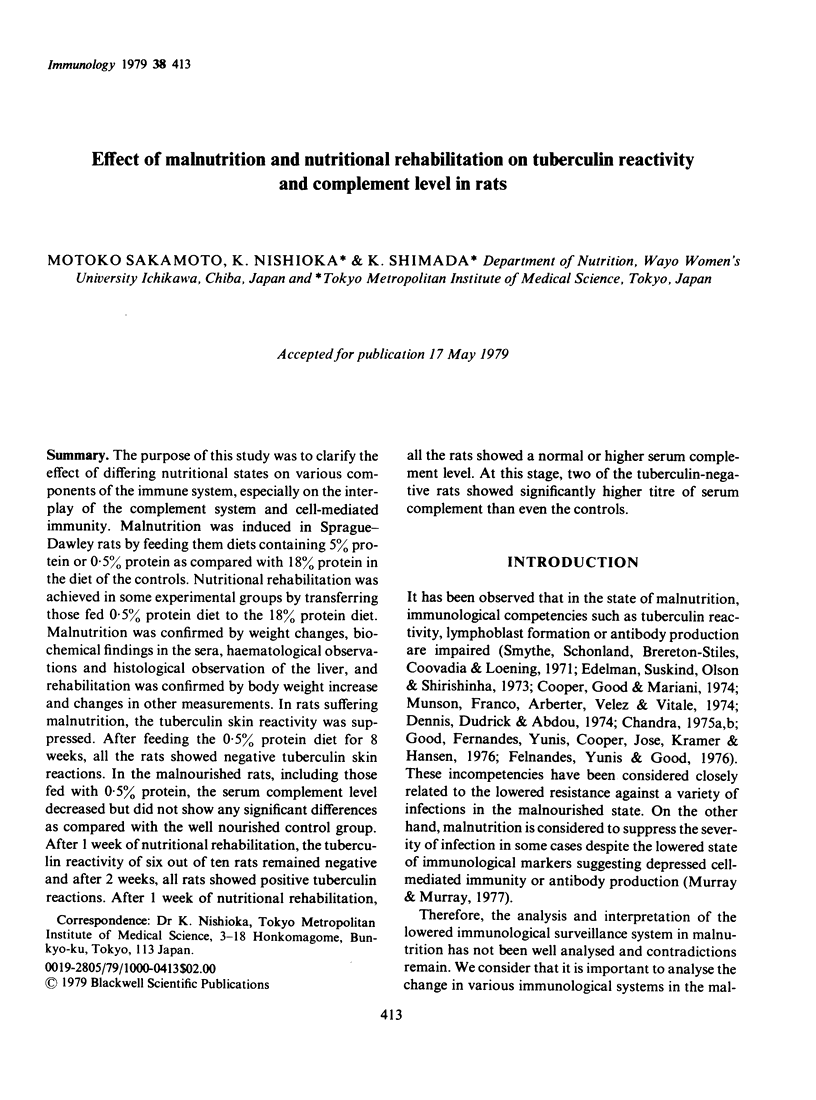
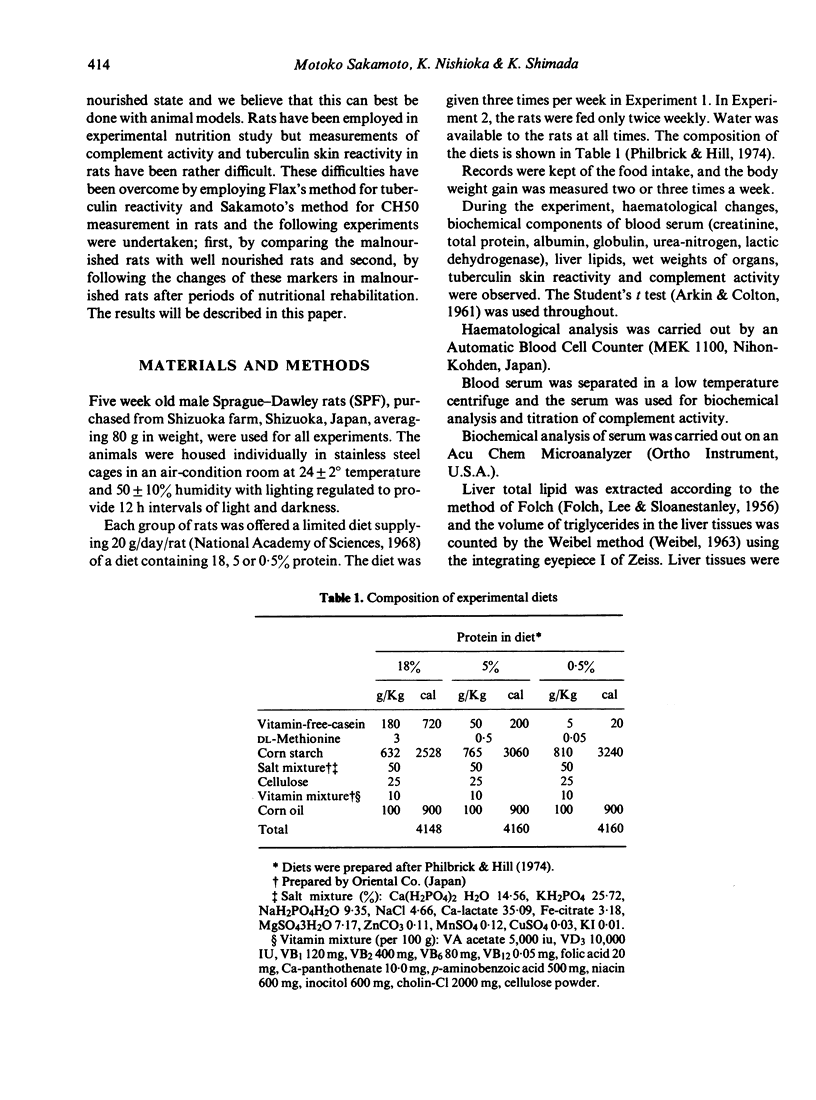
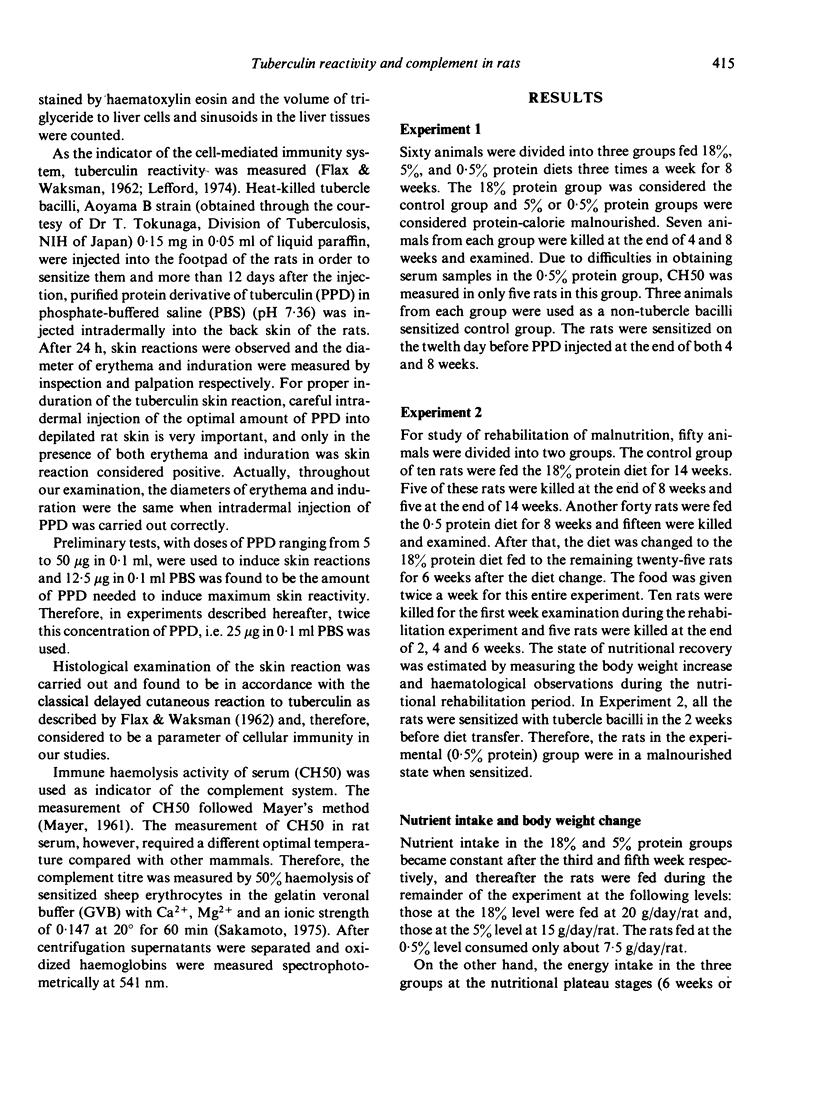
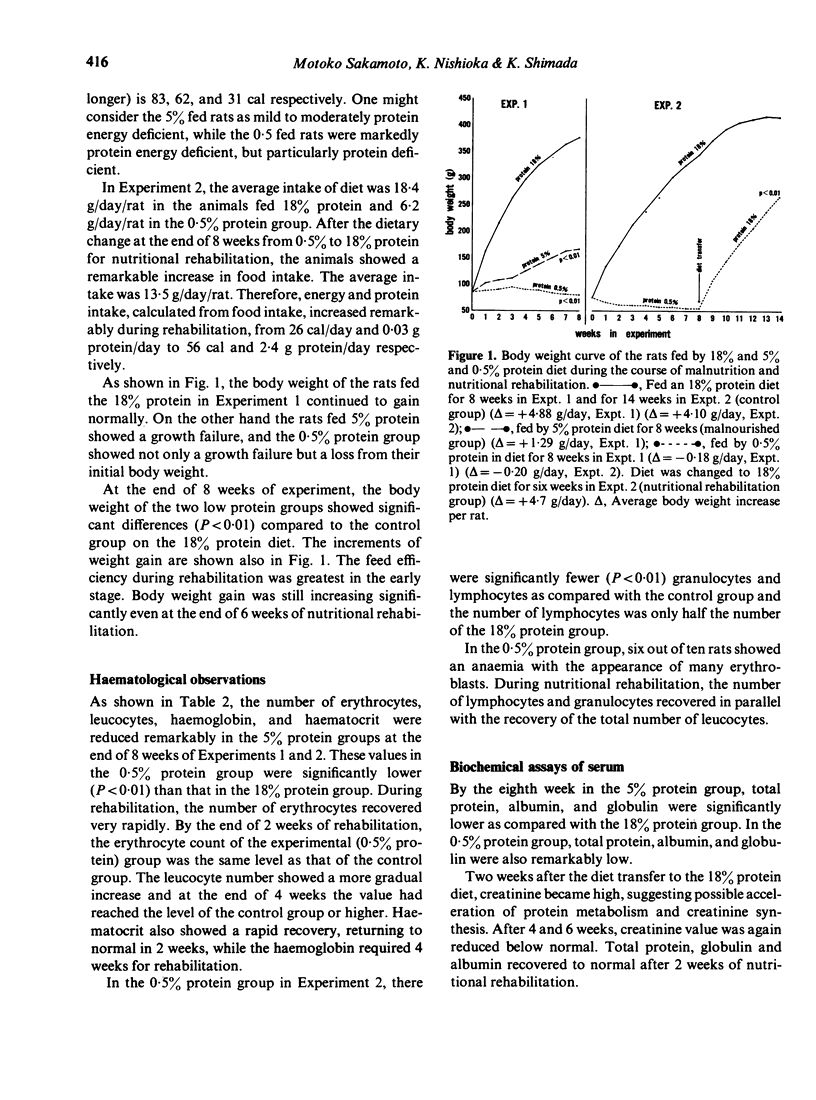
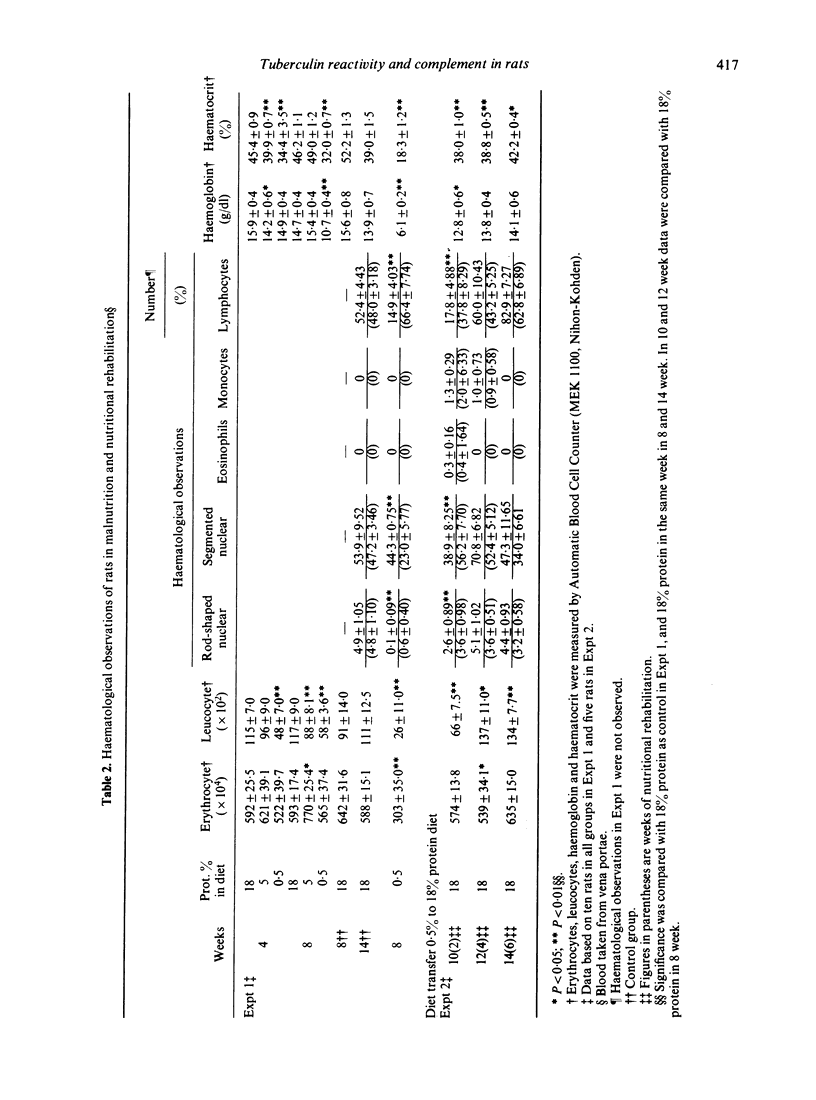
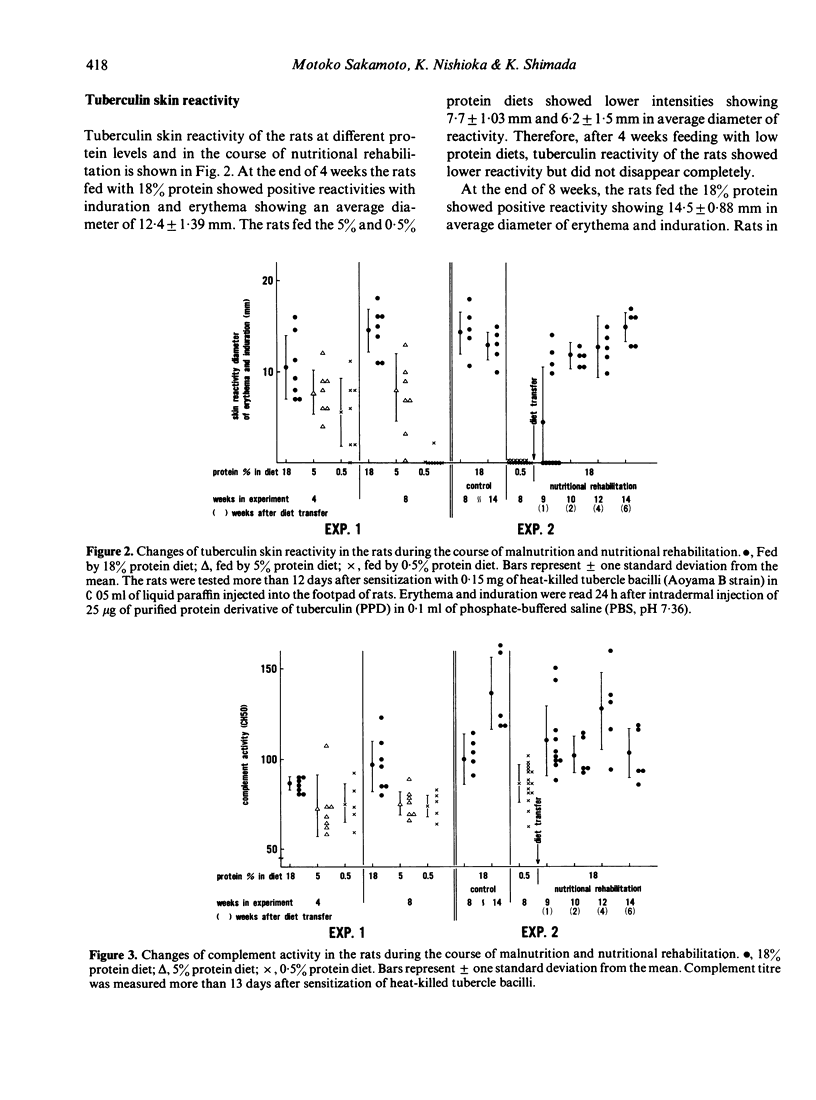
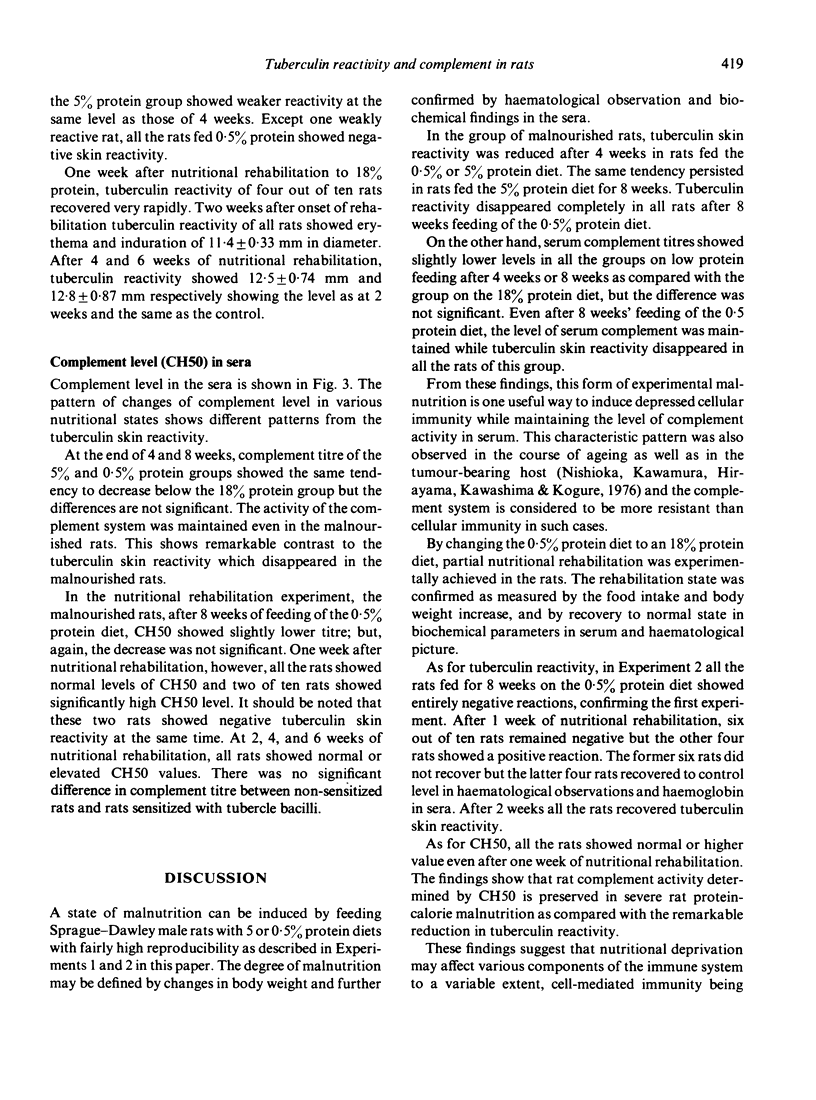
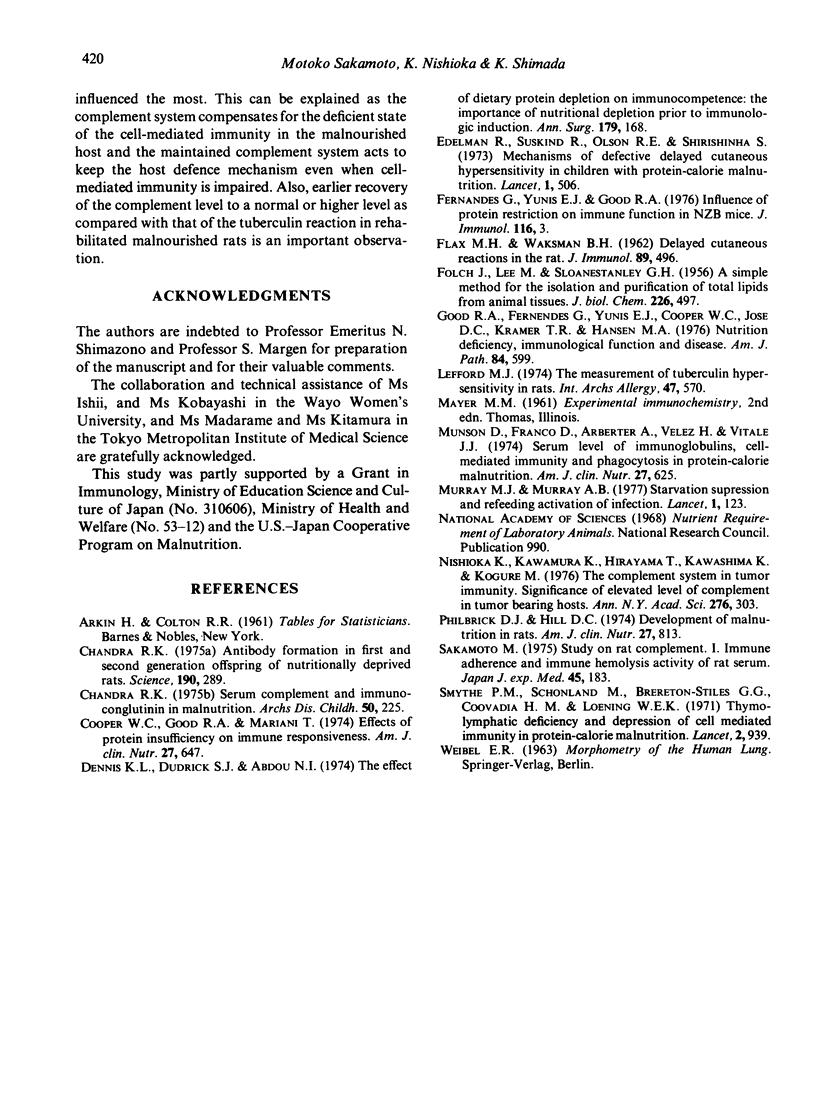
Selected References
These references are in PubMed. This may not be the complete list of references from this article.
- Chandra R. K. Antibody formation in first and second generation offspring of nutritionally deprived rats. Science. 1975 Oct 17;190(4211):289–290. doi: 10.1126/science.1179211. [DOI] [PubMed] [Google Scholar]
- Chandra R. K. Serum complement and immunoconglutinin in malnutrition. Arch Dis Child. 1975 Mar;50(3):225–229. doi: 10.1136/adc.50.3.225. [DOI] [PMC free article] [PubMed] [Google Scholar]
- Cooper W. C., Good R. A., Mariani T. Effects of protein insufficiency on immune responsiveness. Am J Clin Nutr. 1974 Jun;27(6):647–664. doi: 10.1093/ajcn/27.6.647. [DOI] [PubMed] [Google Scholar]
- Edelman R., Suskind R., Olson R. E., Sirisinha S. Mechanisms of defective delayed cutaneous hypersensitivity in children with protein-calorie malnutrition. Lancet. 1973 Mar 10;1(7802):506–508. doi: 10.1016/s0140-6736(73)90326-7. [DOI] [PubMed] [Google Scholar]
- FLAX M. H., WAKSMAN B. H. Delayed cutaneous reactions in the rat. J Immunol. 1962 Oct;89:496–504. [PubMed] [Google Scholar]
- FOLCH J., LEES M., SLOANE STANLEY G. H. A simple method for the isolation and purification of total lipides from animal tissues. J Biol Chem. 1957 May;226(1):497–509. [PubMed] [Google Scholar]
- Good R. A., Fernandes G., Yunis E. J., Cooper W. C., Jose D. C., Kramer T. R., Hansen M. A. Nutritional deficiency, immunologic function, and disease. Am J Pathol. 1976 Sep;84(3):599–614. [PMC free article] [PubMed] [Google Scholar]
- Law D. K., Dudrick S. J., Abdou N. I. The effect of dietary protein depletion on immunocompetence: the importance of nutritional repletion prior to immunologic induction. Ann Surg. 1974 Feb;179(2):168–173. doi: 10.1097/00000658-197402000-00010. [DOI] [PMC free article] [PubMed] [Google Scholar]
- Lefford M. J. The measurement of tuberculin hypersensitivity in rats. Int Arch Allergy Appl Immunol. 1974;47(4):570–585. doi: 10.1159/000231251. [DOI] [PubMed] [Google Scholar]
- Munson D., Franco D., Arbeter A., Velez H., Vitale J. J. Serum levels of immunoglobulins, cell-mediated immunity, and phagocytosis in protein-calorie malnutrition. Am J Clin Nutr. 1974 Jun;27(6):625–628. doi: 10.1093/ajcn/27.6.625. [DOI] [PubMed] [Google Scholar]
- Murray M. J., Murray A. B. Starvation suppression and refeeding activation of infection. An ecological necessity? Lancet. 1977 Jan 15;1(8003):123–125. doi: 10.1016/s0140-6736(77)91710-x. [DOI] [PubMed] [Google Scholar]
- Nishioka K., Kawamura K., Hirayama T., Kawashima T., Shimada K. The complement system in tumor immunity: significance of elevated levels of complement in tumor bearing hosts. Ann N Y Acad Sci. 1976;276:303–315. doi: 10.1111/j.1749-6632.1976.tb41656.x. [DOI] [PubMed] [Google Scholar]
- Philbrick D. J., Hill D. C. Development of malnutrition in rats. Am J Clin Nutr. 1974 Aug;27(8):813–818. doi: 10.1093/ajcn/27.8.813. [DOI] [PubMed] [Google Scholar]
- Sakamoto M. Studies on rat complement. I. Immune adherence and immune hemolysis activities of rat serum. Jpn J Exp Med. 1975 Jun;45(3):183–189. [PubMed] [Google Scholar]
- Smythe P. M., Brereton-Stiles G. G., Grace H. J., Mafoyane A., Schonland M., Coovadia H. M., Loening W. E., Parent M. A., Vos G. H. Thymolymphatic deficiency and depression of cell-mediated immunity in protein-calorie malnutrition. Lancet. 1971 Oct 30;2(7731):939–943. doi: 10.1016/s0140-6736(71)90267-4. [DOI] [PubMed] [Google Scholar]


